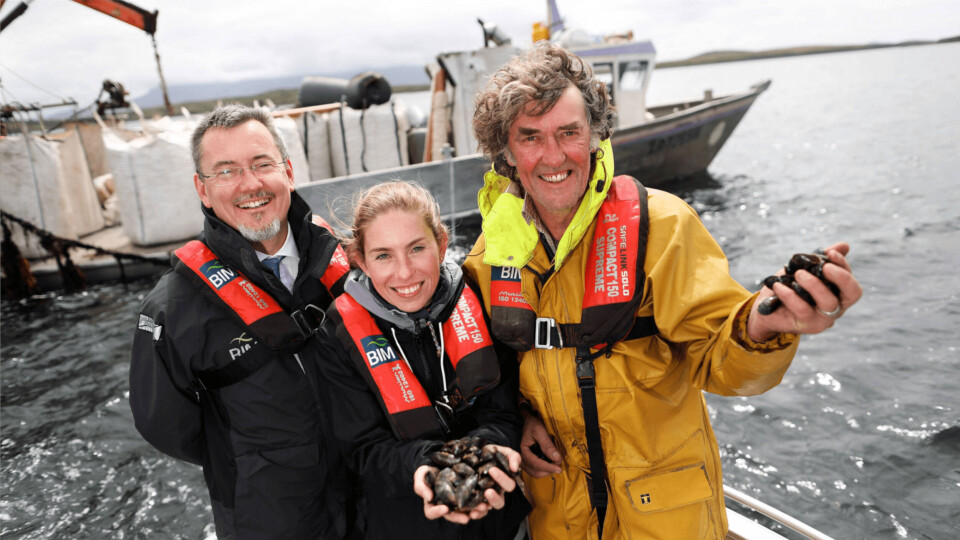
Ireland’s rope-grown mussel growers win MSC approval
The entire Irish rope grown mussel fishery has today achieved Marine Stewardship Council (MSC) certification.
Ireland’s seafood development agency, Bord Iascaigh Mhara (BIM), which licenses the industry, is the holder of the certificate.
The agency also holds the certificate for the Irish bottom grown mussel fishery, which achieved certification in 2013. This latest certification means the entire Irish mussel fishery under BIM management is certified.
National approach
BIM chief executive Jim O’Toole said: “BIM’s strategy is to enable sustainable growth of the seafood sector in Ireland. The prestigious certification achieved allows for a unique national approach where all mussel growers operating in licensed harvest locations in Ireland can now label their mussels with the MSC ecolabel, showing that they are MSC certified as sustainable and from a well-managed fishery.
“Ireland’s mussel industry is export focused and MSC certification of Irish rope grown mussels provides valuable evidence to the marketplace of the sustainable environment in which our seafood is produced.
“This recognition by the MSC means our seafood is produced to the highest standard and protects our aquaculture for future generations.”
Ambition and leadership
O’Toole celebrated the announcement during a visit to Blackshell farm in Westport, Co Mayo, where he was joined by Jo Pollett, senior fisheries outreach officer for MSC UK and Ireland, and mussel farmer, Michael Mulloy, Blackshell Farm Ltd, who is also chair of IFA Aquaculture.
Pollett said: “This is a significant achievement and great news for Irish mussels. BIM has shown ambition and leadership in pushing for the sustainability of Irish fisheries.”
The Irish mussel industry was valued at €11.7 million in 2018 according to the BIM Business of Seafood report. The rope-grown sector produces in the region of 9,000 tonnes each year.






















































